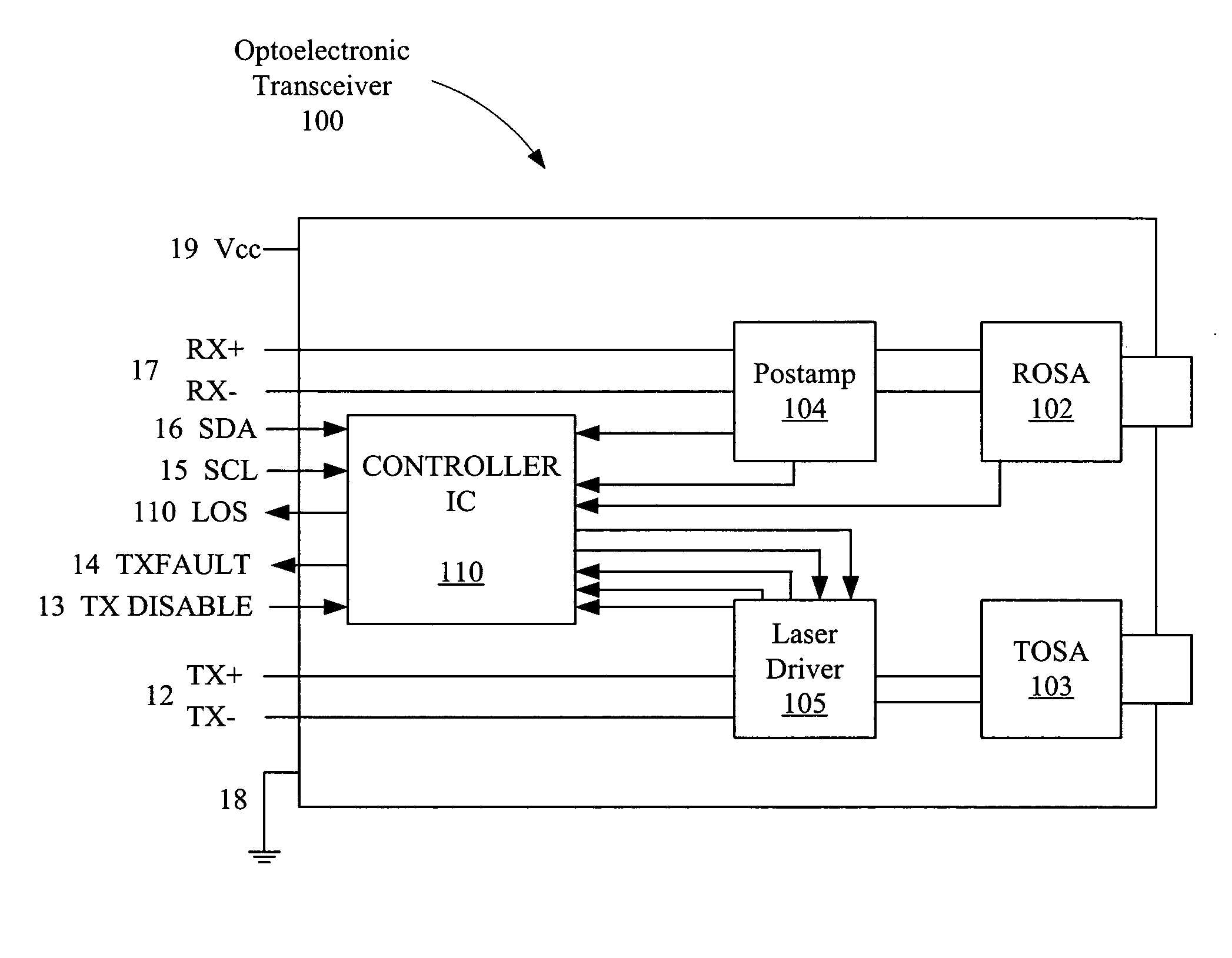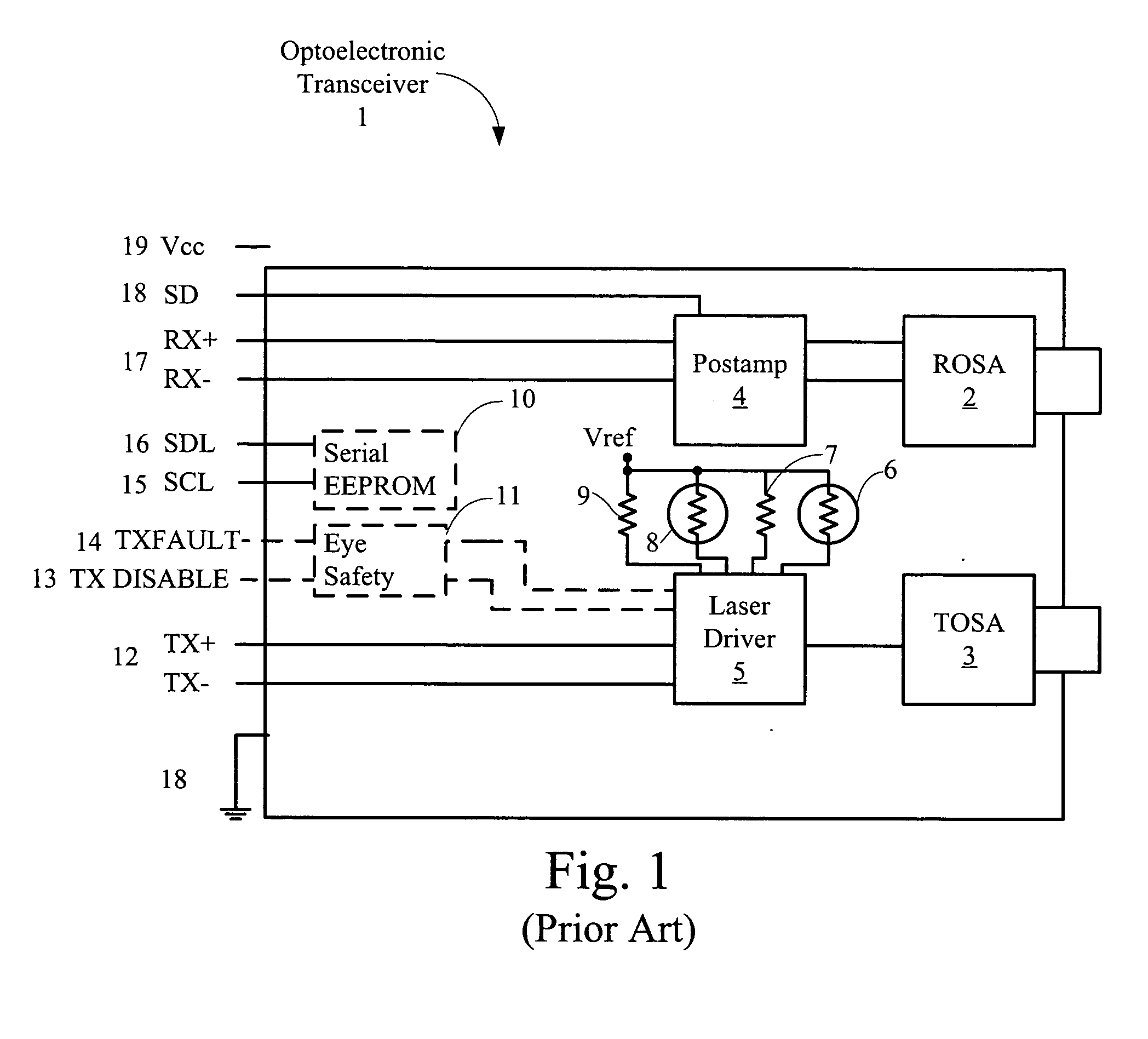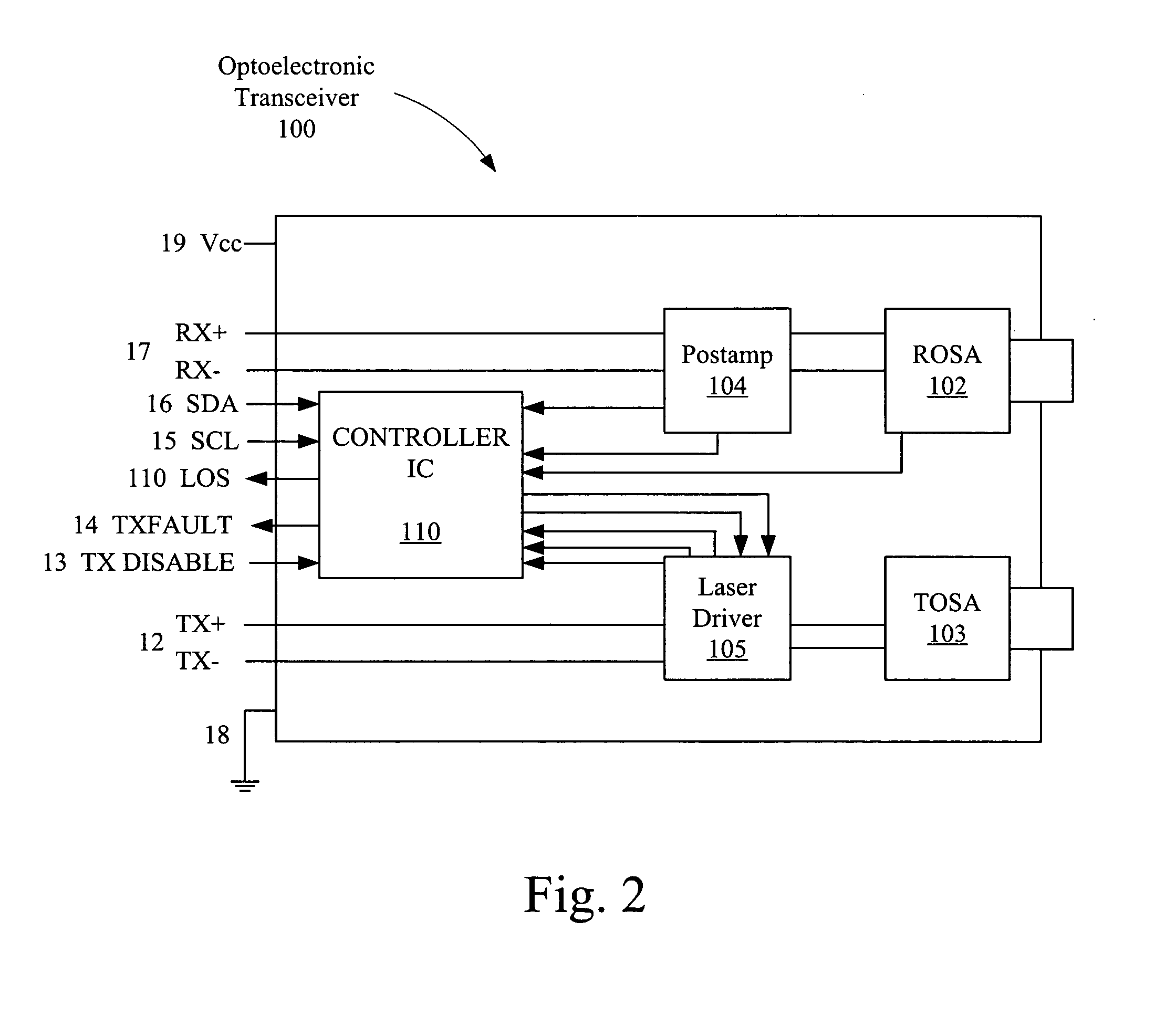Analog to digital signal conditioning in optoelectronic transceivers
an optoelectronic transceiver and analog technology, applied in electromagnetic transceivers, transmission monitoring, electromagnetic transmission, etc., can solve the problems of injuring eyes, harming biological tissues, especially eyes, and potentially dangerous optical energy emitted from fiber optic transceivers
- Summary
- Abstract
- Description
- Claims
- Application Information
AI Technical Summary
Benefits of technology
Problems solved by technology
Method used
Image
Examples
example 1
[0094] The power monitor 422 (FIG. 4) in a fiber optic transceiver that includes a power monitor, or its associated circuitry, fails, indicating no or low output power when the laser is in fact operating. The laser bias driver will attempt to increase the transmitter output power by increasing laser bias current. Since the feedback is interrupted, the laser is driven to its maximum capability, perhaps exceeding the eye safety alarm setpoints. The fast trip alarm flag will be generated in less than 10 microseconds after the failure and this fast trip alarm flag can be used to shut down the laser driver via the internal Tx disable (Dout) output. If the fast trip alarm fails or is not selected in the output logic setup, the high-resolution alarm for laser bias current is generated, and the high-resolution low alarm for power would also occur, either of which could be used to shut down the laser driver and / or TOSA.
example 2
[0095] The laser driver (in all types of fiber optic transceiver), or its associated circuitry fails, driving the laser to its maximum output. Depending on the specific failure, the laser bias current may read zero or very high, and in a fiber optic transceiver that includes a power monitor, the power will read very high. The fast trip alarm for laser bias current, and the fast trip alarm for transmitted output power will generate an alarm flag within 10 microseconds. If the laser bias current is reading zero, the high-resolution low alarm for laser bias current will generate an alarm flag. This may be indistinguishable from a failure that causes zero light output, like an open laser wire or shorted laser, but the alarm systems preferably err on the side of safety and command the laser to shut down. In this condition, it may not be possible for the logic to physically turn the laser off, if, for example, the fault was caused by a shorted bias driver transistor. In any case, the link...
PUM
 Login to View More
Login to View More Abstract
Description
Claims
Application Information
 Login to View More
Login to View More - R&D
- Intellectual Property
- Life Sciences
- Materials
- Tech Scout
- Unparalleled Data Quality
- Higher Quality Content
- 60% Fewer Hallucinations
Browse by: Latest US Patents, China's latest patents, Technical Efficacy Thesaurus, Application Domain, Technology Topic, Popular Technical Reports.
© 2025 PatSnap. All rights reserved.Legal|Privacy policy|Modern Slavery Act Transparency Statement|Sitemap|About US| Contact US: help@patsnap.com



